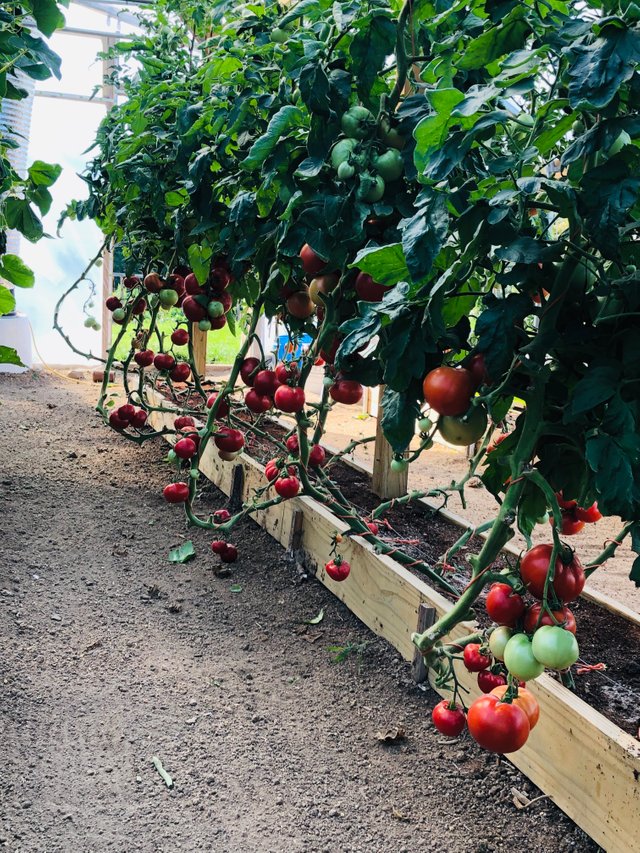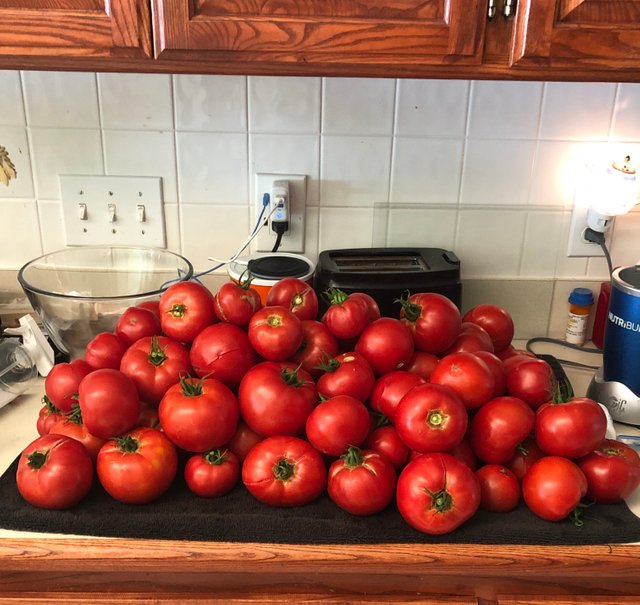One secret that will help your garden to grow more food
For the past 6 years I have been on a mission to learn how to grow a garden like my life depended on it. It was important to me to have a skill set for growing food in a quality and quantity that could feed my family if the necessity ever arose. Four years ago I learned a little secret that has increased the amount of food our garden produces significantly.
The good news here is that you don't need to buy anything for even go check out a book from the library. I am going to include everything here and you will be able to read it in just a few minutes of your time. So what is this big secret and how is it going to change your garden? You aren't feeding your garden properly.
So let me explain. All plants need 16 nutrients to grow, produce fruit and get it to a ripen. Three of those 16, the plant is able to get from the air in the form of hydrogen, carbon and oxygen. The remaining 13 it gets through its roots. Nutrients the plants take in through its roots are obtained through osmosis. And here is that secret I mentioned, those nutrients have to be inorganic and water soluble for the plant to be able to absorb them through osmosis! Organic non water soluble minerals cannot penetrate the root membrane to be available to the plant.
So what does that mean? You should examine what your feeding your plants and determine if they're water soluble or not. If you are adding organic materials to your garden they're not going to be available to the plants until after they've composted and become inorganic. Eventually organic matter, such as rabbit manure or egg shells, will break down and become available to the plants. The problem with this is two part. First, we don't know when that process will be complete. It could be a month from now, or a year from now. Secondly, the plant needs those nutrients now.
When having this discussion with people they're adamant their garden is doing well and looks great. They are experiencing "hidden hunger" and not reaching the full potential of their garden. There are just enough nutrients in their garden that the plants aren't showing symptoms of deficiencies. They are producing food, but not as much as they could produce if they had all the nutrition they needed. Just by feeding a garden correctly one could more than double their production.
Think of it this way. A professional body builder has to take in the right nutrients in the correct amounts to build all that muscle. If they were to take in just enough to meet a minimum calorie and nutrient requirements to sustain life they would likely have a well chiseled physique but they just aren't going to build any real mass. If they have six months to prepare for a body building competition but do not start meeting their nutritional and calorie requirements until month 5, how much muscle mass will they produce for that competition? Not much.
Plants are the same way. They need those nutrients from the beginning of their growth all the way up through the ripening of the fruit they produce. If the plant doesn't have the nutrients they need it will not produce as much food. It is just that simple. If you are adding organic material to your garden it just isn't going to produce to its full potential.
Here are a couple pictures from our garden that were taken this week. Our indeterminate tomatoes are 10 feet tall and occupy 16 feet of an 18" wide grow box in our greenhouse. This week we harvested 85 pounds of tomatoes. The second picture is 43 pounds of tomatoes on our kitchen counter. We feed our garden water soluble inorganic nutrients every week.
If you're interested in hearing how we meet those nutritional needs of our garden please let me know by commenting. Happy gardening.

`

Don't leave me hanging! What is the secret?
Posted using Partiko Android
It was in there, plants can not use nutrients that are in an organic form. It has to be inorganic water soluble for a plant to take it in through osmosis.
Oh I see, I thought you were going to reveal just how or where you find that type of nutrients. I use compost (and I'm kind of lazy with it, so it's often unfinished).
Posted using Partiko Android
Very few people test their compost to determine what nutrients are in their compost, and what percentages is there. Some of the absolute best compost has a small percentage of just 3 nutrients a plant needs. They still need 10 more.
A problem with unfinished compost, in addition to those nutrients not being available to the plant, is any weed seeds or plant disease in that compost didn't reach the needed temperatures to kill it. When adding unfinished compost to the garden you risk introducing weeds and disease back to the garden.
that's amazing 👍 all the hard work really pays off
Thank you. We are transitioning to our winter garden out in our heat sink greenhouse. We have a 4 foot deep, 95 ton, rock heat sink under the greenhouse that will be tested this year. We hope to be able to garden year round with it. Posts on it will be coming in the future as the temps drop.
You've been visited by @minismallholding from Homesteaders Co-op.
Well you've left me in suspense! I usually soak my compost and water with that. I'd love to hear your own methods.
A community marketplace of ethical, handmade and sustainable products available for STEEM, SBD (and USD): https://homesteaderscoop.com
follow: @homesteaderscoop
If your compost is complete it will work for you. We use a small amount of nutrients that are derived from rocks mined from the earth, and placed only in the root zone of the plants in our garden on a weekly basis. We limit our beds to a width of 12 inches and use very little fertilizer, just half an ounce per linear foot. of that half an ounce, only .2 ounches of it is a "salt" .
Minerals is something I've only recently been starting to learn about the importance of. I think most of my problems steem from the fact that it's hard to keep any moisture in the soil in summer, so the bacteria isn't there to convert them into something the plants can use. Hence why I like to soak the compost and get it all ready in a usable form.
Posted using Partiko Android
Great tip and great looking tomatoes re streamed for you
Posted using Partiko iOS
Thank you. That information made big changes in our garden when we started amending with only inorganic water soluble nutrients.
I've had my soil tested by Logan labs for years now. I get the micro nutrient testing done. With the worksheets from Steve Solomon's The Intelligent Gardener (created to work only with the Logan test), I make up the needed nutrient mix for my soil.
I've done extensive posts on how to do this, what the minerals are and where to find them. You are the first person I've seen who does something similar. Very cool!